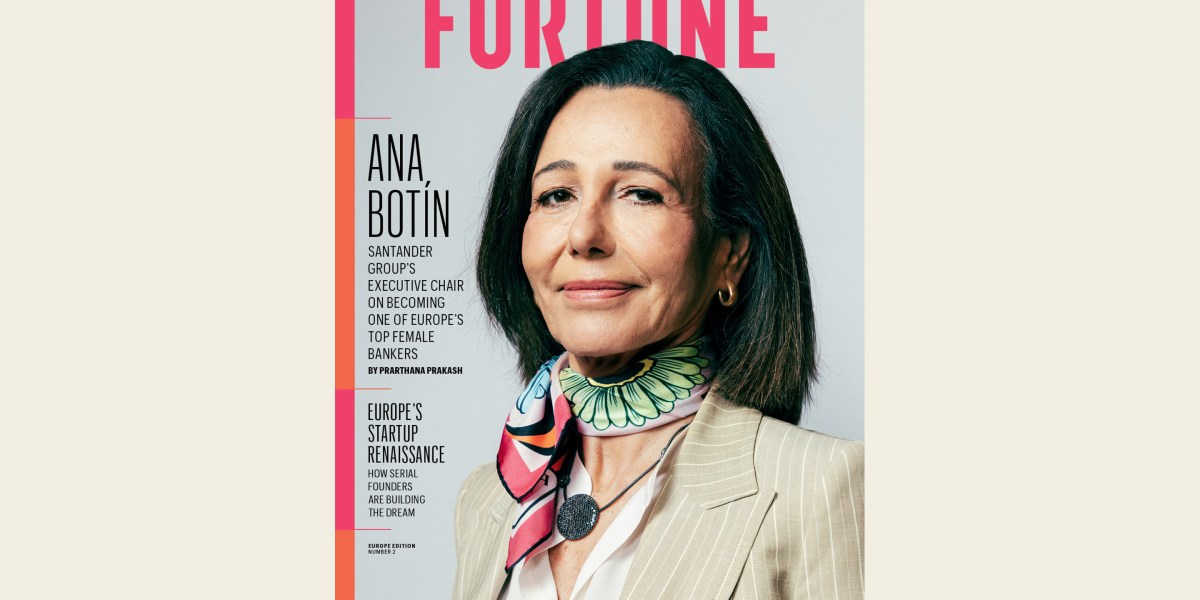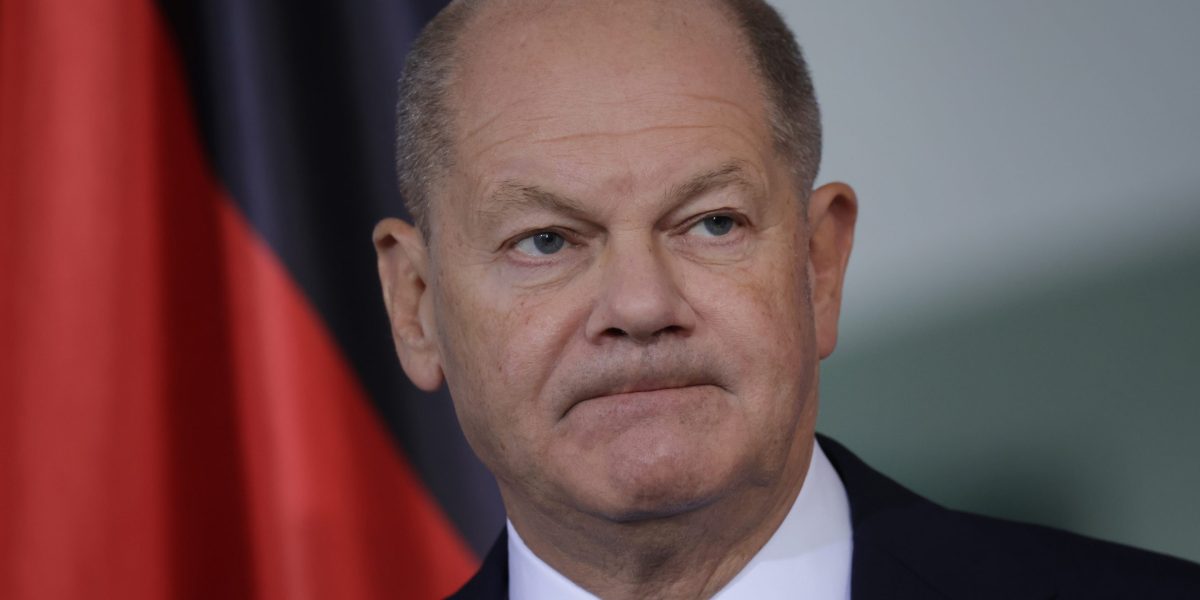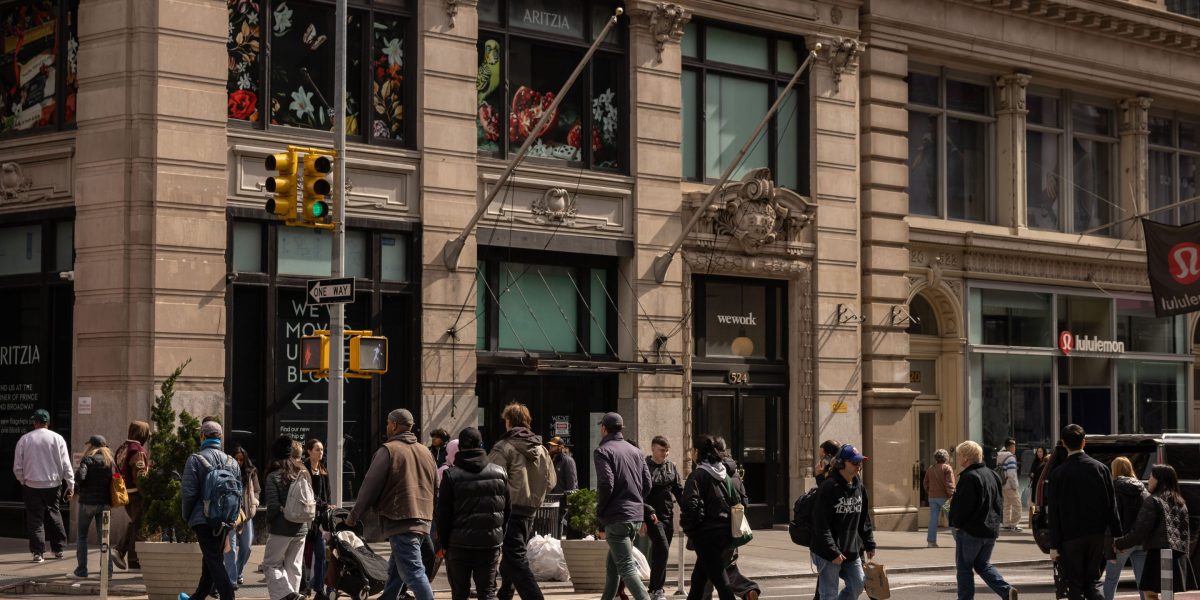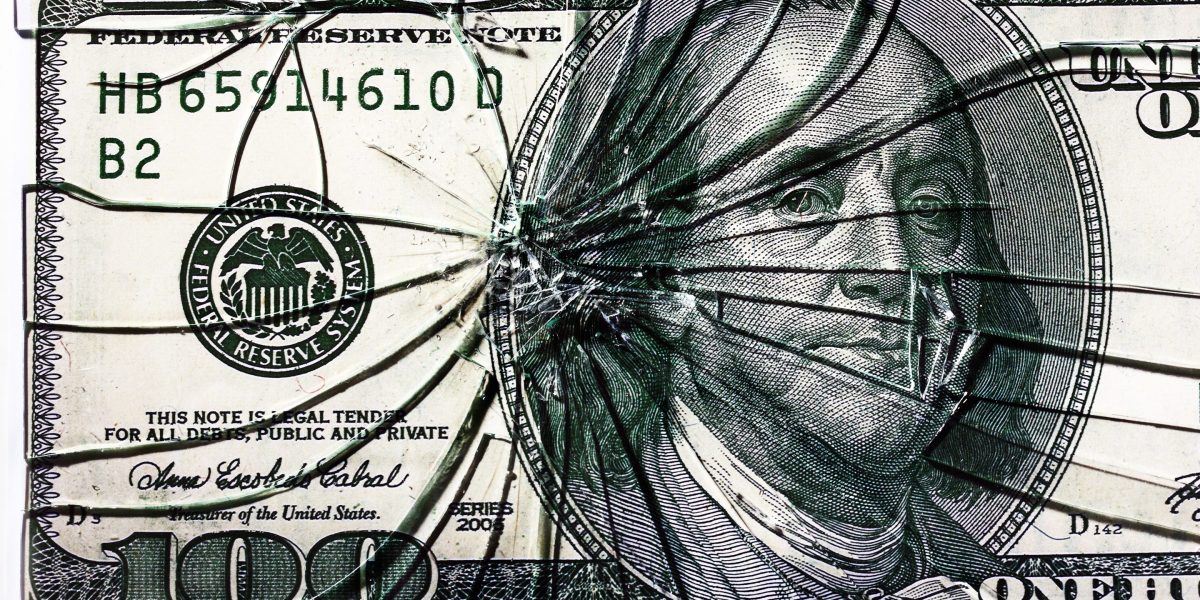- While spending continued to increase in February, income grew even more, lifting the savings rate and indicating more caution among Americans. As growth slows down, some businesses are slashing their earnings forecasts amid consumer behavior concerns.
As confidence in the economic outlook fades, consumers are slowing their spending, and businesses are lowering their earnings forecasts.
Personal income jumped 0.8% last month, while spending increased 0.4%, contributing to a boost in the savings rate to 4.6%. That’s the highest since June 2024 and signals shoppers are turning more cautious.
“The February spending data confirm a slowdown in consumer activity in the first quarter of 2025,” Comerica Bank Chief Economist Bill Adams said in a note.
Weak January spending could point to “one-off drags” from LA fires and harsh weather conditions, “but February’s anemic rebound points to a more persistent drag,” he added.
At the same time, consumer confidence is sinking, though sentiment doesn’t translate to actual spending.
The Conference Board’s expectations index in its latest consumer confidence survey fell to a 12-year low. The index plunged to 65.2, which is “well below the threshold of 80 that usually signals a recession ahead.”
Additionally, the University of Michigan’s consumer sentiment survey released this week tumbled 11%.
“This month’s decline reflects a clear consensus across all demographic and political affiliations,” director of the survey Joanne Hsu said. “Republicans joined independents and Democrats in expressing worsening expectations since February for their personal finances, business conditions, unemployment, and inflation.”
As consumers grow weary of the economic headwinds, companies across industries are feeling the heat.
Some are dropping earnings forecasts while others remain on watch as tariffs, inflation, and consumer behavior impact their business.
FedEx lowered its full-year forecast for adjusted profit to $18-$18.60 per share from $19 to $20, which is already down from a December forecast for $20-$22.
During its quarterly earnings call, CFO John Dietrich attributed the lower outlook to “ongoing challenges in the global industrial economy, inflationary pressures, and the uncertainty surrounding global trade policies.”
Delta Air Lines also dropped its earnings projections for the first quarter, now expecting a profit between 30 cents and 50 cents per share, compared to previous appraisals between 70 cents and $1 in January.
According to a regulatory filing in March, Delta said its dimmer guidance was due to lower consumer and corporate confidence caused by increased economic uncertainty, hitting domestic demand.
“Consumers in a discretionary business do not like uncertainty,” Delta CEO Ed Bastian said on CNBC. “And while we do believe this will be a period of time that we pass through, it is also something that we need to understand and get to calmer waters.”
Additionally, American Airlines cut its growth forecasts in March after weaker demand in its domestic leisure segment and continued fallout from the plane crash over the Potomac River in January. The company expects first-quarter revenue to flatten out compared to a year ago, down from its prior forecast of a 3% to 5% increase.
‘Tariff headwinds’
Elsewhere, other companies are providing disappointing guidance. Lululemon is seeing low consumer sentiment “manifesting itself” into slower foot traffic. The company projects first quarter revenue of $2.34 billion-$2.36 billion, lower than the Street’s expectations of $2.39 billion.
The company conducted a survey with Ipsos earlier this month regarding consumer sentiment, and found “consumers are spending less due to increased concerns about inflation and the economy.”
CFO Meghan Frank said during the earnings call that “tariff headwinds” could lead to slower sales in 2025. In fact, management sees revenue of $11.1 billion-$11.3 billion this year, up modestly from $10.59 billion in 2024 but also below analysts’ expectations for $11.31 billion.
Retail giant Walmart offered a full-year adjusted earnings forecast of $2.50-$2.60 per share, short of Wall Street’s $2.76 per share projection.
CEO Doug McMillon had also warned about consumer confidence during a Feb. 27 talk at the Economic Club of Chicago. He noted that “budget-pressured” customers were reducing their spending and showing “stressed behaviors.”
American Eagle said it’s been impacted by the spending slowdown and estimates a $5 million-$10 million economic hit from tariffs on China for its fiscal year.
CEO Jay Schottenstein said a “fear of the unknown” is contributing to “less robust demand.”
“Not just tariffs, not just inflation, we see the government cutting people off,” he added. “They don’t know how that’s going to affect them.”
This story was originally featured on Fortune.com
Source link

 Entertainment8 years ago
Entertainment8 years ago
 Politics8 years ago
Politics8 years ago
 Entertainment8 years ago
Entertainment8 years ago
 Entertainment8 years ago
Entertainment8 years ago
 Tech8 years ago
Tech8 years ago
 Tech8 years ago
Tech8 years ago
 Tech8 years ago
Tech8 years ago
 Politics8 years ago
Politics8 years ago







